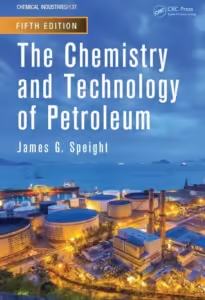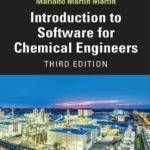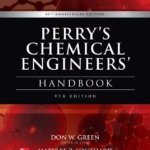 Free download The Chemistry and Technology of Petroleum (5th edition) authored by James G. Speight in pdf.
Free download The Chemistry and Technology of Petroleum (5th edition) authored by James G. Speight in pdf.
The Chemistry and Technology of Petroleum (5th Ed.) by James G. Speight is a comprehensive reference that explores the fundamental principles and advanced technologies of petroleum science. Covering the entire spectrum from the chemical makeup of petroleum to modern refining techniques, the book serves as a crucial resource for engineers, chemists, and industry professionals.
This updated edition offers fresh insights into environmental challenges, sustainable practices, and the rapidly changing petroleum technology landscape, combining theoretical knowledge with practical applications. It serves as an invaluable resource for those aiming to enhance their understanding of the intricate chemistry and processing of petroleum.
As global demand for petroleum products rises, refineries are adopting innovative methods to improve efficiency and throughput. Furthermore, evolving environmental regulations are driving significant changes in product specifications, directly influencing petroleum refining technologies. These trends highlight the importance of this fifth edition, which builds on the success of its predecessor by providing a comprehensive review of petroleum chemistry and technology as it progresses into the 21st century.
This edition incorporates the latest advancements in refining, including new techniques, process updates, and revisions in response to environmental regulations. It also explores economic factors and the future of refineries, discusses the shifting nature of refinery feedstocks, and addresses environmental considerations in refining. The book features over 300 figures and tables, including detailed chemical structures and process flow diagrams.
A valuable reference for both scientists and engineers in the petroleum and catalyst manufacturing industries, this book guides readers through the science and technology of petroleum, from its natural formation to the production of various products and petrochemical intermediates.
The inclusion of numerous older references may come as a surprise to some readers. This is intentional, as it highlights the enduring value of early research in petroleum science. Many foundational works from the past remain relevant today, even as newer studies using advanced equipment have emerged. In particular, several older concepts regarding the chemical and physical structure of petroleum have stood the test of time.
These ideas continue to hold significance and should not be overlooked for their important contributions to the field. However, some older references from previous editions have been removed, largely due to the unavailability of sources for modern researchers and the lack of accessible, substantiated data beyond the author’s own archives.
This edition strives to offer a comprehensive overview of the chemistry and technology of petroleum as it progresses into the 21st century. Reflecting this, many chapters from the fourth edition have been revised to incorporate the latest advancements in refining technologies, including updates on evolving and emerging processes, as well as new environmental regulations.
Despite these updates, the book stays true to its original purpose: to guide readers through the science and technology of petroleum, from its formation underground to the production of various petroleum products and petrochemical intermediates.
The text remains a valuable resource not only for newcomers seeking an introduction to petroleum science but also for scientists and engineers already working in the petroleum and catalyst manufacturing industries who wish to gain an updated understanding of the field.
Contents
Section I: History, Occurrence, and Recovery
- History and Terminology
- Classification
- Origin and Occurrence
- Reservoirs and Reservoir Fluids
- Kerogen
- Exploration, Recovery, and Transportation
- Recovery of Heavy Oil and Tar Sand Bitumen
Section II: Composition and Properties
- Chemical Composition
- Fractional Composition
- Petroleum Analysis
- Structural Group Analysis
- Asphaltene Constituents
- Structure of Petroleum
- Instability and Incompatibility
Section III: Refining
- Introduction to Reining Processes
- Reining Chemistry
- Distillation
- Thermal Cracking
- Catalytic Cracking
- Solvent Processes
- Hydrotreating and Desulfurization
- Hydrocracking
- Hydrogen Production
- Product Improvement and Treating
- Gas Processing
- Petroleum Products
- Petrochemicals
Section IV: Environmental Issues
- Refinery Wastes
- Environmental Aspects of Reining
- Environmental Analysis
Free download The Chemistry and Technology of Petroleum (5th edition) authored by James G. Speight in pdf from following download links.
To access the download links, please follow these instructions. If the links do not appear on your mobile device, try visiting this page using a laptop or desktop computer for better visibility.
Password for Download Links: chemistry.com.pk
File Size: 10.2 MB. Pages: 942. Download Instructions. Please read Disclaimer.
You can also buy The Chemistry and Technology of Petroleum (5th edition) authored by James G. Speight from Amazon by clicking the image below.

You may also like to download the following books for free:
- Analysis, Synthesis and Design of Chemical Processes (5th Ed,) by Richard Turton, Joseph A. Shaeiwitz, Debangsu Bhattacharyya, and Wallace B. Whiting
- Fundamentals of Thermal-Fluid Sciences (6th International Studen Ed.) by Yunus A. Cengel, John M. Cimbala, and Afshin J. Ghajar
- Thermodynamics: An Engineering Approach (10th International Student Ed.) by Yunus A. Çengel, Michael A. Boles, and Mehmet Kanoğlu
Free Download Hundreds of Best-Selling Biology and Chemistry Books from Free Download Biology and Chemistry Books.
P.S: If the download link(s) is/are not working, kindly drop a comment below, so we’ll update the download link for you.
Happy studying!


